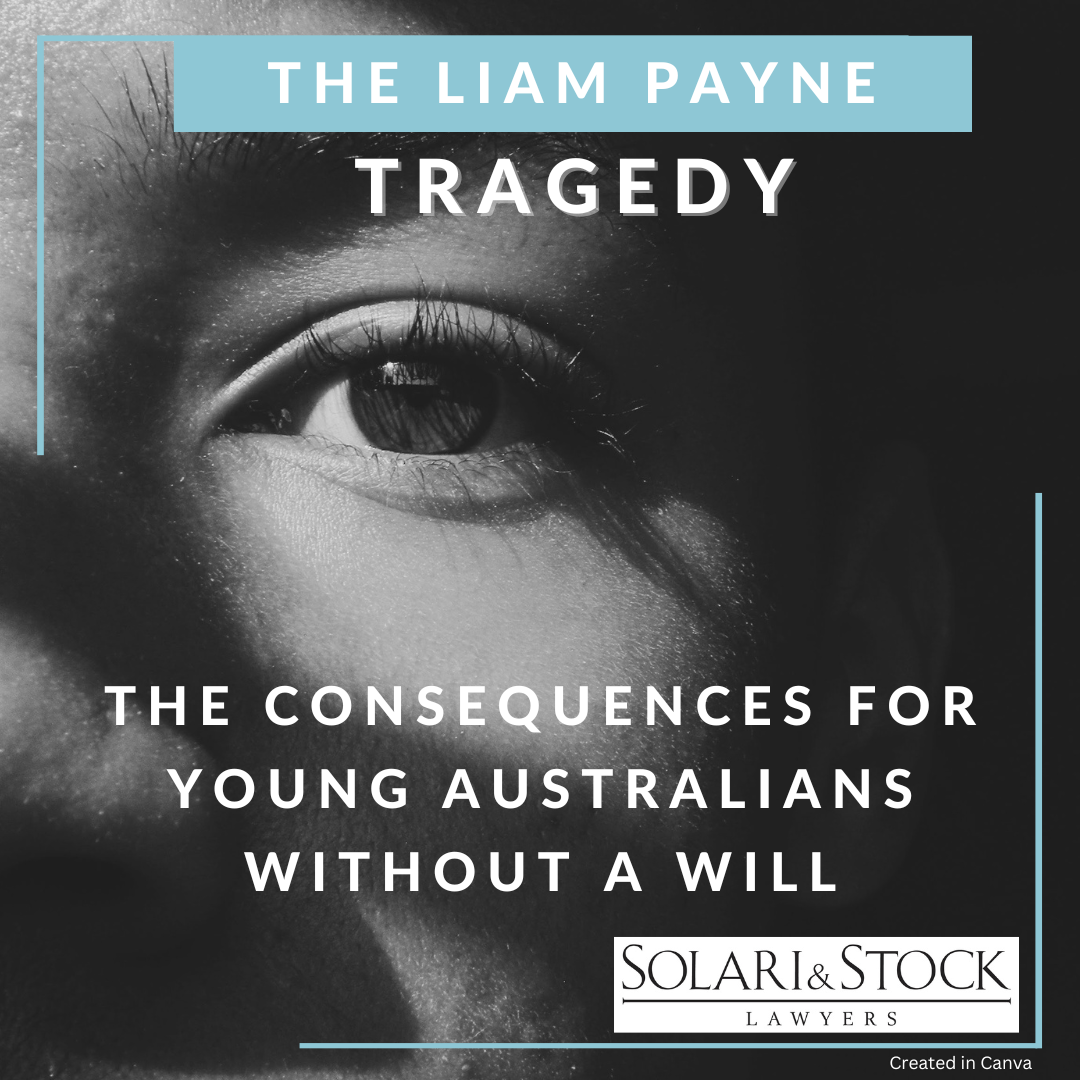12 May The Consequences for Young Australians Without a Will: the Liam Payne tragedy

It has been reported that Liam Payne tragically died intestate, leaving a girlfriend, parents, and young son, Bear. His fortune is estimated to be around 24 million GBP, and now the rules of intestacy will dictate how that fortune will be distributed.
Dying intestate—without a valid Will—can have far-reaching and sometimes unintended consequences, especially for young people who may not expect to need an estate plan.
In New South Wales, the rules of intestacy are set out in the Succession Act 2006 (NSW), which prescribes a strict order for distributing a deceased person’s assets. This article explores what happens when a young person dies intestate, and the, often unintended consequences, of that.
Liam Payne was just 31 years old when he died. He had built a successful career in the music and entertainment industry and according to reports, had accumulated a significant fortune.
At the date of his death, Liam was unmarried and shared young son, Bear, with his ex-partner. Tragically, Liam died unexpectedly, without ever having made a will. Liam likely left behind parents, close friends, maybe a de facto partner and others who were close to him, and they may be left wondering what will happen to his estate.
How the Estate is Distributed
Under the Succession Act 2006 (NSW), the distribution of Liam’s estate is determined by a fixed hierarchy:
- Children First: Because Liam has a child but no spouse or de facto partner, the entire estate passes to Bear. As Bear is under 18, the inheritance is held on trust until he reaches 18.
- Parents and Friends Excluded: Liam’s parents, despite any close relationship, receive nothing under the intestacy rules. Friends, regardless of their emotional connection, are not recognised as beneficiaries.
- No Provision for Others: Unless someone can successfully bring a family provision claim (which is only available to certain categories of people), the law does not allow for any assets to be distributed to friends or more distant relatives.
Practical Implications
- Guardianship and Trusts: With no will, Liam has not nominated a guardian for Bear. The court may need to appoint a guardian, and Bear’s inheritance will be managed by a trustee (often a public trustee or court-appointed administrator) until he turns 18.
- Family Provision Claims: While parents are eligible to make a family provision claim if they can show they were dependent on Liam, or that adequate provision was not made for their maintenance, such claims are not guaranteed to succeed. Friends have no standing to make such a claim.
- Delays and Costs: The process of administering an intestate estate is often slower and more expensive, as the court must appoint an administrator and may need to resolve disputes among potential claimants.
Lessons for Young Australians
The tragic events of Liam’s premature death highlights the importance of making a will, regardless of age or perceived wealth. Without a will, the law—not the individual—decides who inherits. For young people with children, a will is essential to ensure assets are managed appropriately and guardianship is clear. For those who wish to provide for parents, friends, or charities, a will is the only way to ensure those wishes are honoured.
Conclusion
Dying intestate can leave loved ones without support and create unnecessary legal and emotional complications. Liam’s death demonstrates that, in NSW, intestacy laws favour children but exclude parents and friends, regardless of the deceased’s wishes. Making a will is a simple but vital step to protect those you care about.
If you have questions about your existing Will or would like create one, contact Solari and Stock and speak with one of our Sutherland Shire Estate Planning Team on 8525 2700, alternatively or click here to request an appointment.
Our Estate Planning Team includes Rebecca Exley, Michael Solari, Nicole Commandeur and Valentina Abouzeid.
Article by Rebecca Exley
Image created in Canva